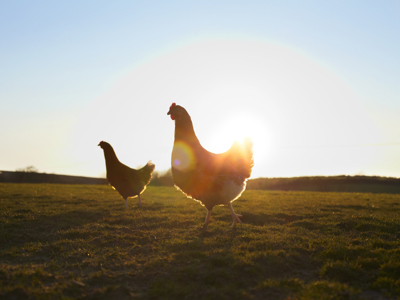
River Action issues legal challenge against Ofwat over water bill regulation
River Action has issued a legal challenge against Ofwat accusing it of failing to properly regulate water companies, which the campaign group says could result in customers effectively having to foot the bill to cover past infrastructure failures.
Posted on 02 April 2025
After sending a pre-action protocol letter to Ofwat at the start of March 2025, River Action has now applied for permission for judicial review of the regulator’s Price Review 2024 (PR24).
River Action argues Ofwat’s PR24 unlawfully approved ‘enhanced funding’ for United Utilities without any mechanism to ensure that the extra investment will be used to fund new water and sewage projects, rather than to fix past issues.
The campaign group warns that customers could essentially be made to pay twice for these past infrastructure issues – once via their previous water bills and again through their upcoming bills.
River Action says that water companies need to bear the cost for these past infrastructure failures, which the campaign group argues have come about through years of neglect.
In its claim, River Action highlights a request from United Utilities (UU) in August 2024 for enhanced funding, which it proposed to use on extra improvements to water treatment works and pumping stations in the Windermere area.
This was granted by Ofwat as part of the PR24 - a decision which River Action argues failed to address all the relevant information.
The campaign group points to research compiled by Windrush Against Sewage Pollution (WASP) which revealed 6,000 hours of raw sewage was pumped into Lake Windermere in 2024.
It also raises concerns that the enhanced funding UU is set to receive could be used to deal with previous infrastructure failings rather than for the proposed improvements.
River Action says that the modelling used by Ofwat to assess funding decisions does not reflect the reality shown by the evidence compiled by WASP.
The campaign group also raises concerns over Ofwat’s ability to claw back enhanced funds if they have been misused, and questions the regulator's approach to assessing whether water companies are compliant with their permits.
River Action, represented by law firm Leigh Day, has now submitted its judicial review challenge to the courts.
It is applying for permission to bring a judicial review claim on the following grounds:
- Ofwat’s approach to implementing its ‘not paying twice’ policy was unreasonable because the regulator relied on “hydraulic simulation modelling” (a method for forecasting sewage infrastructure capacity), which River Action argues does not reflect the reality shown in its evidence provided to Ofwat.
- Ofwat implemented ‘clawback’ provisions in an unreasonable manner.
- Ofwat made legally insufficient enquiries into whether the modelling approach it uses to assess compliance is adequate.
Leigh Day solicitor Ricardo Gama said:
“Ofwat has provided repeated assurances that it won’t let price rises be spent on fixing historic issues, and that customers won’t be expected to pay twice. But in documents seen by River Action, it appears that Ofwat hasn’t sufficiently investigated whether the extra funding that United Utilities has been allocated will actually be used for that purpose. River Action believes that this is indicative of a wider lack of due diligence undertaken by Ofwat over many years, which has resulted in money not being spent on maintaining infrastructure.
“In launching its legal challenging, River Action is calling for Ofwat to take regulatory action to ensure that water companies do not pass the cost of their own failure onto customers.”

River Action raises Ofwat regulation concerns over use of funds from higher water bills
River Action has raised serious concerns over Ofwat’s failure to properly regulate water companies’ use of public investment via higher water bills.

High Court ruling adds weight to challenge to intensive poultry unit in Shropshire
A judicial review case supported and funded by campaign group River Action as part of its drive to limit the uncontrolled growth of large-scale intensive poultry production farms has been strengthened by an important High Court ruling this week.


